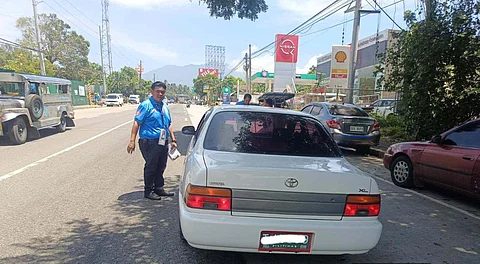
- NEWS
- the EDIT
- COMMENTARY
- BUSINESS
- LIFE
- SHOW
- ACTION
- GLOBAL GOALS
- SNAPS
- DYARYO TIRADA
- MORE

The Land Transportation Office (LTO) said Saturday it will conduct street-level distribution for all motorcycle owners who have yet to claim either their new license plates or replacements for old ones.
Dubbed “Oplan: Stop, Plate and Go,” LTO chief assistant Secretary Atty. Vigor D. Mendoza II said the initiative is one of several strategies to expedite the distribution of motorcycle license plates. The move comes after the agency cleared an 11-year-old backlog involving millions of plates.
“The instruction of the President is clear: to expedite the distribution of these license plates to their rightful owner. We in the LTO are complying, and we are on the right track of completing the distribution,” Mendoza said.
Under “Oplan: Stop, Plate and Go,” LTO patrol vehicles will be deployed to strategic areas in cities or municipalities to conduct checkpoint-style operations.
“I have already directed all regional directors down to the district office heads to intensify the information drive about this project. Many motorcycle riders tend to avoid LTO checkpoints,” Mendoza said.
“This time, they shouldn’t be afraid because there will be no penalty for not having a plate — instead, their plate will be handed to them on the spot. That’s why I’ve instructed them to put up large tarpaulins and launch a wide-reaching social media campaign to inform all our fellow riders,” he added.
The patrol vehicles will carry license plates for motorcycles registered in the area. LTO enforcers will flag down motorcycles without license plates and hand the plate directly to the rider. If the plate is unavailable, enforcers are mandated to assist the rider in tracking its status.
The initiative will first roll out in Metro Manila, Central Luzon and Calabarzon — regions with the highest number of unclaimed motorcycle plates.
Mendoza expressed confidence that motorcycle riders who benefit from “Oplan: Stop, Plate and Go” will help spread the word to their fellow riders.
In addition to the checkpoint-style operations, Mendoza has tasked all regional directors and district office heads to coordinate with local government units, motorcycle riders’ groups, and tricycle operators and drivers’ associations to broaden the campaign and plate distribution efforts.
“I also instructed all the Regional Directors before to come up with the best ways to reach out to the motorcycle owners to claim their license plates. And I am elated that they came up with their own programs in doing so,” Mendoza said.
Across the country, LTO personnel are now setting up kiosks and assistance desks in motorcycle parking areas and hubs to guide riders on how to claim their plates.
Several LTO offices have also set up desks under the “Palit-Plaka” program, which aims to provide replacement plates for outdated ones.
Eligible participants include motorcycle owners with seven-character plates and those who have not received their actual plates for motorcycles registered in 2017 or earlier.
Mendoza said the initiative is in line with President. Marcos Jr.’s directive to accelerate the release of license plates, under the leadership of Department of Transportation Secretary Vince Dizon.
